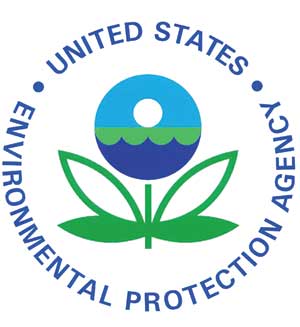Mandatory RIN registration deadline approaches

July 20, 2007
BY Anduin Kirkbride McElroy
All renewable fuel production facilities, refiners, importers and exporters must register with the U.S. EPA by Sept. 1, 2007, when the federal renewable fuel standard (RFS) takes effect. In May, the EPA issued its final ruling, which details how the RFS is to be enacted.
"Compliance is demonstrated through the acquisition of unique renewable identification numbers (RINs) assigned by the producer or importer to every batch of renewable fuel produced or imported," wrote the EPA in the final ruling. "The RIN shows that a certain volume of renewable fuel was produced or imported. Each year, the refiners, blenders and importers obligated to meet the renewable volume requirement must acquire sufficient RINs to demonstrate compliance with their volume obligation. RINs can be traded, thereby functioning as the credits envisioned in the [Energy Policy Act of 2005]." Each 38-character numeric code stays with the batch of fuel as it is transferred to others. This trading program will allow renewable fuels to be used where they are most economical while providing a flexible means for obligated parties to comply with the standard, according to the EPA.
When the RFS goes into effect in September, the trading of renewable fuel is considered a regulated activity. RINs must be generated for all renewable fuel produced or imported on or after this date. Producers and importers of renewable fuel can also generate RINs for product in inventory on the start date. Secondly, obligated parties begin counting the volumes of gasoline produced on or after this date. These volumes form the basis of their renewable volume obligations under the RFS program. Finally, recordkeeping and reporting requirements begin, with the first report due to the EPA on Nov. 1, 2007.
"Owning RINs, and engaging in any activities regarding RINs, is prohibited as of Sept. 1, 2007, unless the party has registered and received EPA company and facility identification numbers," the EPA wrote. The EPA also encouraged timely registration because the generation of RINs and handling transactions involving RINs are prohibited without a confirmed registration.
The registration form is short, but the compliance, recordkeeping and reporting is more complicated. Since registration dictates if a producer can operate after Sept. 1, the Renewable Fuels Association produced a two-hour webinar with EPA officials and RIN experts. The webinar is a tutorial on the RIN program. It includes presentations on compliance and reporting, registration and recordkeeping, and a trademarked credit management system called RINSTAR (RIN Supply, Trading, Accounting and Reporting). There is also a presentation on the reporting system and Central Data Exchange, as well as a presentation on the ethanol industry's responsibility under the RFS program by Jim Redding of Aventine Renewable Energy Inc.
The RFA's webinar is available at www.ethanolrfa.org. Details about the final ruling and links to the registration forms can be found at www.epa.gov/otaq/renewablefuels/index.htm#forms. The RFA also has the individual presentations available for download.
"Compliance is demonstrated through the acquisition of unique renewable identification numbers (RINs) assigned by the producer or importer to every batch of renewable fuel produced or imported," wrote the EPA in the final ruling. "The RIN shows that a certain volume of renewable fuel was produced or imported. Each year, the refiners, blenders and importers obligated to meet the renewable volume requirement must acquire sufficient RINs to demonstrate compliance with their volume obligation. RINs can be traded, thereby functioning as the credits envisioned in the [Energy Policy Act of 2005]." Each 38-character numeric code stays with the batch of fuel as it is transferred to others. This trading program will allow renewable fuels to be used where they are most economical while providing a flexible means for obligated parties to comply with the standard, according to the EPA.
When the RFS goes into effect in September, the trading of renewable fuel is considered a regulated activity. RINs must be generated for all renewable fuel produced or imported on or after this date. Producers and importers of renewable fuel can also generate RINs for product in inventory on the start date. Secondly, obligated parties begin counting the volumes of gasoline produced on or after this date. These volumes form the basis of their renewable volume obligations under the RFS program. Finally, recordkeeping and reporting requirements begin, with the first report due to the EPA on Nov. 1, 2007.
"Owning RINs, and engaging in any activities regarding RINs, is prohibited as of Sept. 1, 2007, unless the party has registered and received EPA company and facility identification numbers," the EPA wrote. The EPA also encouraged timely registration because the generation of RINs and handling transactions involving RINs are prohibited without a confirmed registration.
The registration form is short, but the compliance, recordkeeping and reporting is more complicated. Since registration dictates if a producer can operate after Sept. 1, the Renewable Fuels Association produced a two-hour webinar with EPA officials and RIN experts. The webinar is a tutorial on the RIN program. It includes presentations on compliance and reporting, registration and recordkeeping, and a trademarked credit management system called RINSTAR (RIN Supply, Trading, Accounting and Reporting). There is also a presentation on the reporting system and Central Data Exchange, as well as a presentation on the ethanol industry's responsibility under the RFS program by Jim Redding of Aventine Renewable Energy Inc.
The RFA's webinar is available at www.ethanolrfa.org. Details about the final ruling and links to the registration forms can be found at www.epa.gov/otaq/renewablefuels/index.htm#forms. The RFA also has the individual presentations available for download.
Advertisement
Advertisement
Advertisement
Advertisement
Upcoming Events





